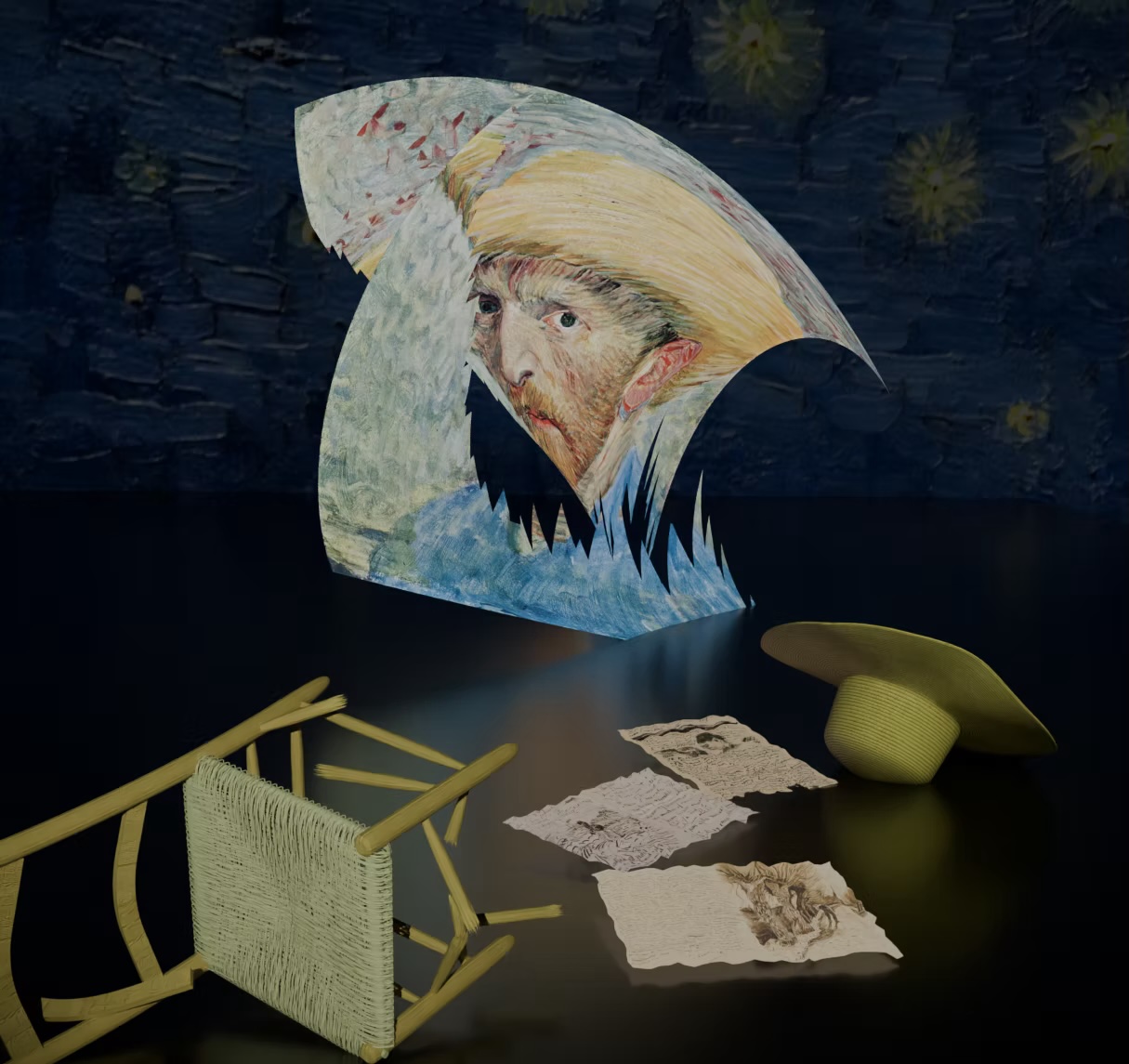Exhausted paint is dry, forever cemented, its liquid lustre irretrievably gone. In this haunting one-man play, Van Gogh stands before us a similarly exhausted man. Famously unknown in his life, endlessly analysed and diagnosed post-mortem, he mournfully reflects on “the sum of his failure”. But he still has enthusiasms to share – for light, for colour, and for oneness with the beauty of the world.
Playwright Justin Maxwell paints a fractured, disordered narrative, where factual episodes from Van Gogh’s life interleave with flights of oratory. The shadow of his madness is never far away: we hear about asylums, about confinement and precious freedom, and of course about his horrific self-mutilation. But we hear too about his remarkable affinity for colour, his search for the perfect blue or deepest red, and the existential joy he finds in crystal light. As Van Gogh, actor Drew Stroud navigates these transitions well, at times inspired and at times defeated, capturing the sense of a trapped and tortured soul who nonetheless knows transcendental beauty.
It can take some effort to follow Maxwell’s poetic, often allegorical language, but this is carefully-ordered chaos: there’s never any doubt where we are, and we all know how the narrative will eventually end. Van Gogh’s death does have to be addressed, and it’s done with sensitivity and meaning – framing an act of insanity in terms we’re now equipped to understand. There’s a smattering of humour throughout the show too, a necessary relief from its emotional and artistic intensity.
To reinforce the theme of a mind whirling out of control, an array of props is suspended from a kind of Wheel of Fortune – which Stroud reaches up to spin at the end of each scene, inviting fickle fate pick out the next one. It’s a neat gimmick, which successfully evokes how Van Gogh lost control of both his life and his legacy, but where the wheel settles is open to interpretation – and it’s fairly clear that Stroud is treating its choices as more of a guideline. A measure of smoke-and-mirrors is part of the theatre-maker’s craft, but the randomness of the wheel is literally the show’s central pillar… and it feels a slightly shaky one.
Ultimately though, this show is more about a feeling than a story: about a unique man’s almost physical connection with colour, light, and the stars. Whether this is truly how Van Gogh experienced the world, nobody can say. But the script quotes enough of its sources to make the case a convincing one; perhaps it’ll make you see the world a little differently, too.


Comments